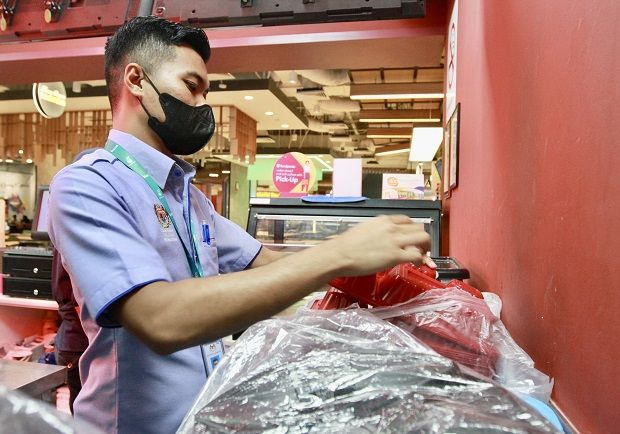THE move towards a sustainable tomorrow is rapidly gaining momentum as Malaysia transitions into its recovery phase, with people all over the world reassessing their priorities and values as they emerge from the shadow of the pandemic.
That’s not to say that the journey to forge a greener path for the future of the nation has just started.
While members of the public would likely point to the imposition of the 20 sen charge on biodegradable plastic in March 2019 – and the subsequent ban on the use of plastic straws in January the year after – as the start of the green movement, the Federal Territories Ministry (KWP) kickstarted the initiative to use biodegradable products as early as June 2016.
Aiming to reduce the use of single-use plastics, polystyrene and plastic straws, the initiative is aimed at reducing pollution, ensuring the well-being of the people and preserving the environment.
Tracing back to January 2017, all business premises within federal territories must implement the usage of biodegradable products and packaging.
One may ask: What is the process of biodegradation? Simply put, it’s a process where a substance decomposes naturally over a period of time, which can also potentially be composted.
The benefits are innumerable.
Not only are these products – supported by 35 suppliers who market biodegradable products that are certified under the Standards and Industrial Research Institute of Malaysia Bhd’s (SIRIM) Eco-Labelling Scheme – non-toxic and safe to use as containers for food and beverage (F&B), they can also be recycled and reused, thus reducing the amount of plastic waste going to landfills and reducing the total expenditure on solid waste management.
Under the initiative, KWP set a 2022 target to achieve 100% use of biodegradable products within federal territories, where the use of single-use plastic bags and plastic straws is strictly prohibited.
Implementation of monitoring and enforcement is carried out in accordance with current legislations and regulations, with non-compliance possibly resulting in license cancellation, deposit rights deprivation, penalties and confiscation.
But rest assured, it’s not as scary as it sounds.
The main aim of the initiative, after all, is to encourage widespread usage of biodegradable products among both businesses and consumers, thus ensuring a better planet for generations to come.
That’s why compounds have been temporarily suspended since the first movement control order in 2020, with KWP officers only issuing warning notices to raise awareness and encourage compliance.
Encouragingly, more than 80% of 4,932 business premises visited in the federal territories from January to August this year have already adopted biodegradable products within their operations.
A good move
Ashraf Ikmal, an outlet manager at a popular cafe in Kuala Lumpur, said that the initiative was a good move from KWP, as there is a need to reduce single-use plastics, which are major contributors to environmental pollution.
“Moving forward, we need to use biodegradable packaging to lessen our impact on the environment and safeguard the oceans and trees for the future generations,” he said.
The cafe, which slowly switched from single-use plastic packaging to biodegradable options over the course of the past few years, now utilises rice straws and paper-based takeaway bags.
He said that it was initially hard for consumers to accept the switch, as staff members had to explain its necessity and raise awareness on biodegradable packaging. That said, acceptance increased when consumers understood the reasoning behind it.
F&B outlet staff member Rohan Abdullah put forward the same view, noting that biodegradable products help save the environment by reducing pollution.
Sharing that the outlet uses paper bags and straws – the latter is only supplied upon request – he said that consumers are not only satisfied with the new packaging, but also appreciate it.
He said, “As most fast-food restaurants these days provide cups without straws, consumers have been more aware and more used to doing without them, so there aren’t many requests for paper straws.
Increased understanding, acceptance
Although seven exhibitions, forums and biodegradable product sales have been organised in 2022 to further spread the word about the biodegradable product initiative, the populace believes that more needs to be done as a large number of people lack understanding on the need to integrate biodegradable products into their daily lives.
According to Lee Ruo Qi, KWP’s initiative is a good one as it provides consumers with the option of not using plastic or packaging made from non-environmentally friendly materials. That said, she highlighted the importance of constantly raising awareness among the public to facilitate widespread adoption of biodegradable products.
“I think there’s still a need to raise awareness. Perhaps more activities and events can be held to promote awareness on the need, because the public may not have an understanding or proactively use biodegradable packaging,” she suggested, adding that this could be done through various events or media platforms present in the daily lives of consumers.
On the other hand, Karen Crane presented a different point of view, as she opines that mass adoption of biodegradable products hinges on making such products affordable and practical.
She pointed out that while bubble tea straws are biodegradable, for instance, the functionality is not optimal as the straws degrade too quickly.
“As far as moving towards biodegradable packaging is concerned, it (KWP’s initiative) is to Malaysia’s benefit,” she added.
Moving forward
On KWP’s end, it has assured that it will continue to hold communication, education and public awareness programmes, also known as CEPA, to educate all levels of society on sustainability and the biodegradable products usage initiative.
Moreover, it seeks to encourage the development of the biodegradable product manufacturing to foster the creation of new job opportunities and industries within the federal territories, as well as encourage green technology applications and development.
This is in line with KWP’s goal to ensure low carbon federal territories, in accordance with the concept of sustainable development.








